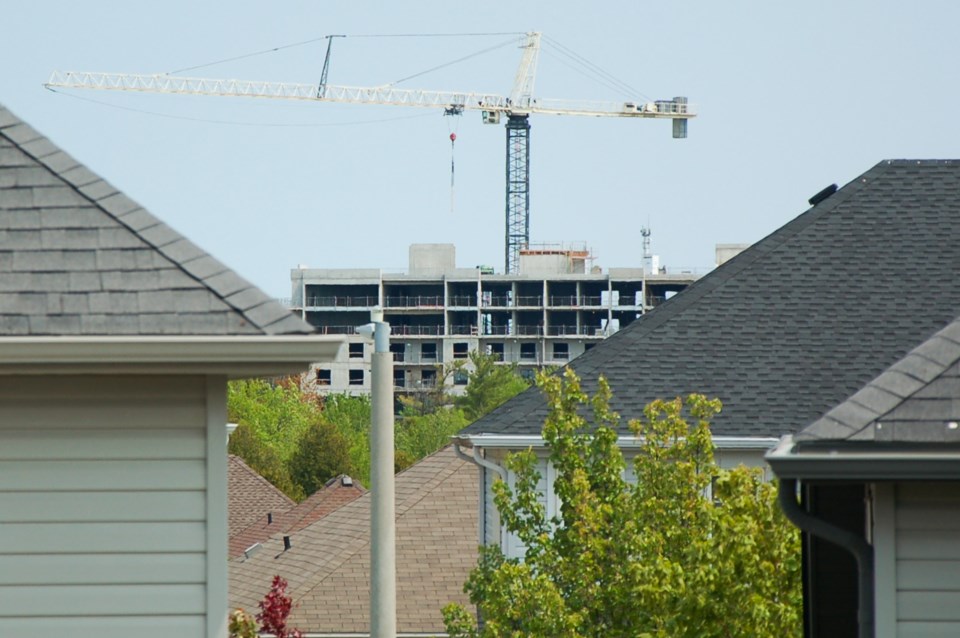Earlier this week the Guelph Chamber of Commerce released an open letter to the city, issuing a municipal "call to action" on housing crisis-related matters. The letter is signed by a number of local community organizations and business representatives, but not all chamber members agree with the tactic. Member Arni Mikelsons of Northern Village offered the following response.
I am absolutely disgusted by the press release put out by the Guelph Chamber of Commerce regarding a “plan of action on Guelph’s housing crisis”.
As a chamber member, I feel that it is not the role of the chamber to be telling the Guelph city council to take “ownership” for something that is really the responsibility of the private sector. The City does not build homes. Developers do. There over 6,000 approved units that are waiting for developers to take the next step. Why are they not being built? Developers can put a shovel in the ground tomorrow if they want, but they don’t. Why don’t they? Could be that there is a labour shortage. It could be the cost of construction materials. It could be that their capital is tied up elsewhere. None of this has anything to do with the City.
The chamber says that there needs to be a plan with responsibility for action. Well, the City already has a plan (two actually) — called the official plan and the zoning bylaw. It outlines how and where developers can build, with the prescribed density. Both documents are brand spanking new and give the development industry a lot of new latitude — higher densities, an end to exclusionary zoning, accessory dwelling units, triplexes, etc. They have appealed it, so none of those new expanded permissions can be implemented. Bill 23 even gives them more — like no site plan review for smaller developments and waiving of development charges if they sell for 80 per cent of market value (in a hyper-inflated market). Oh, that cost is passed on to the municipal tax payer.
Now, if the developer would like to build something outside the official plan, then yes, there is a process. But the process is in place so that we can have a livable city. So that there are enough parks, that the sewage capacity is sufficient, that there are not going to be traffic jams, that you can get around on a bicycle, and that there are amenities close by. If developer’s application is to get rid of these things, the answer is rightfully NO. That is not red tape — that is good process. And makes for a livable city. The chamber of commerce knows that having a livable city is what attracts investment.
If a developer wants to build according to the official plan, the City is not standing in the way!
You are very well aware that the provincial government asked Guelph for a plan to build 18,000 units by 2031. The City did extensive consultation for three years with developers, community stakeholders, looked at infrastructure, traffic patterns and submitted the official plan amendment 80. The City signed the housing pledge to meet that goal and clearly spelled out to the province what they need to make it happen. Isn’t this exactly the kind of plan that the chamber is asking for?
If this is a major concern, why does the chamber of commerce not take on the role to facilitate this? The headline in your article is “Community Led Housing Campaign”, so it would seem that you are in a much better position to take it on, instead of adding it to the City’s bureaucracy and tax base. Seems to me with the relationships that are listed as signatories in your letter and your ability to lobby other levels of government, that would make us an ideal candidate to bring everyone together.
I think you know that the county is responsible for social housing, and that the province and the federal government are the only ones that can provide sufficient funds to implement a national housing strategy. Cities are simply not financially equipped to do this, nor is it their jurisdiction.
The chamber could also work with the people who already have building permits to see why they cannot build. Perhaps the chamber could help these companies overcome some of the difficulties they are having. Or lobby governments for assistance to overcome some of these barriers.
I do hope that you seriously consider this. As a long standing chamber member, I would strongly support you taking on this role.
Arni Mikelsons



